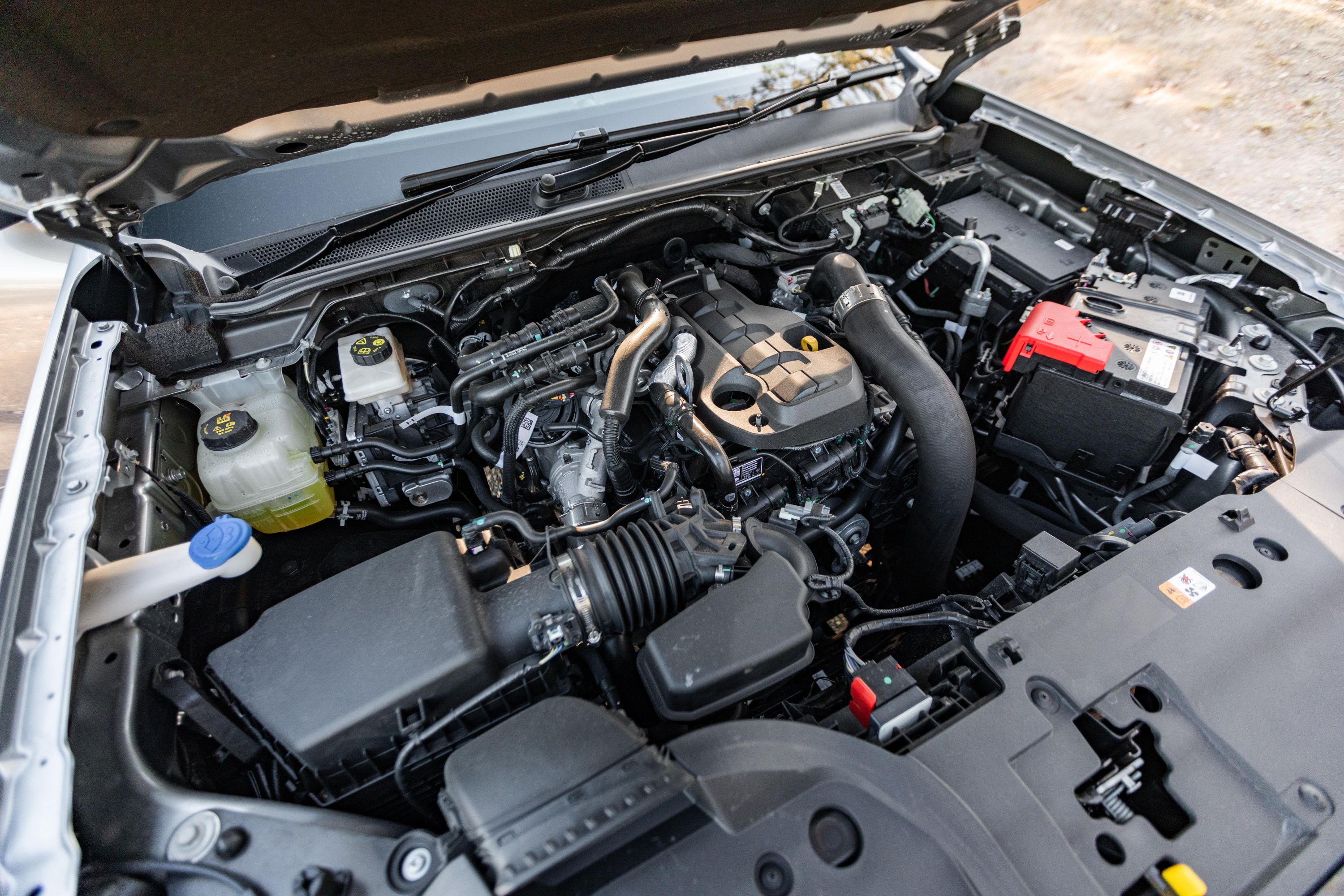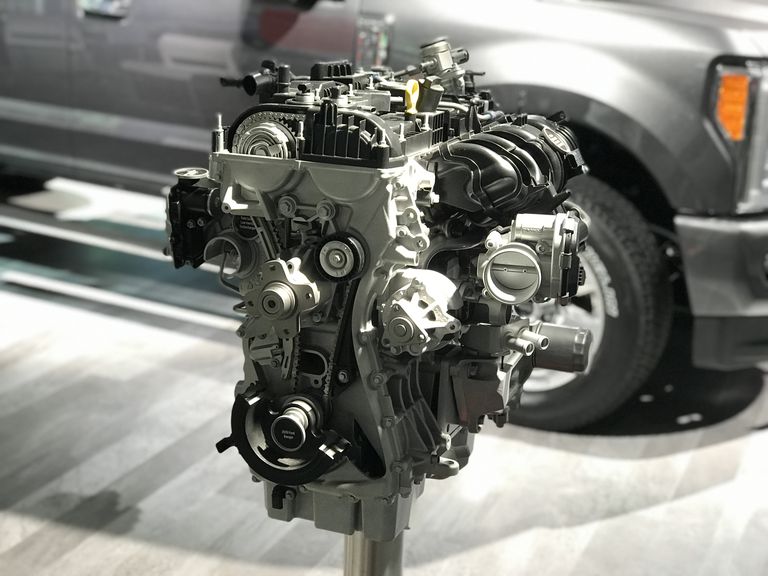Why the 2.2 Ford Ranger Engine Is a Popular Choice for Rugged and Reliable Performance
Why the 2.2 Ford Ranger Engine Is a Popular Choice for Rugged and Reliable Performance
Blog Article
How to Choose the Right Auto Engine for Optimum Efficiency and Effectiveness
Selecting the appropriate automobile engine to attain an ideal equilibrium of efficiency and performance demands a nuanced understanding of various engine types and their certain qualities (2.2 ford ranger engine). Factors such as engine variation, the number of cylinders, and gas type play a pivotal duty in establishing both power outcome and fuel economic situation.
Recognizing Engine Types
When selecting an auto, among one of the most important components to take into consideration is the engine type, which acts as the heart of the automobile. The engine type considerably influences the car's general efficiency, durability, and suitability for your driving demands. There are largely 3 engine types to take into consideration: interior combustion engines (ICE), hybrid engines, and electrical engines.
Inner burning engines continue to be one of the most common, running on gas or diesel. They are known for their power and acceleration, making them ideal for performance-oriented lorries. Nevertheless, they may fall short in gas performance and ecological impact.
Hybrid engines combine an inner burning engine with an electric motor, supplying an equilibrium between efficiency and fuel economic situation. They are increasingly prominent for motorists looking for minimized exhausts while still delivering appropriate power.
Electric engines, powered totally by batteries, are getting grip due to their environmental benefits and lower running prices. They offer instantaneous torque and a quiet driving experience, making them optimal for city travelling.

Efficiency vs. Performance
Choosing the best engine type involves evaluating the trade-offs in between performance and performance. Performance typically describes just how well an engine can deliver power and acceleration, which is typically linked with larger variation engines or those with turbocharging capacities. These engines usually provide exciting driving experiences and quick action times, making them prominent among fanatics.
On the various other hand, effectiveness focuses on gas economic situation and lower exhausts. Smaller sized engines, especially those furnished with advanced technologies such as direct fuel shot and variable valve timing, have a tendency to supply better miles per gallon and decreased carbon impacts. While these engines might compromise some power contrasted to their larger equivalents, they typically master daily driving situations where high performance is not constantly essential.
Inevitably, the selection between efficiency and performance hinges on specific top priorities. A motorist that values perky driving could prioritize a high-performance engine, while somebody looking for cost-effective travelling may favor an effective alternative. Understanding these trade-offs is vital for making an informed decision that lines up with your driving requirements and way of living, making sure that the chosen engine type complements your expectations for both performance and effectiveness.
Key Requirements to Think About
Comprehending vital requirements is essential for making an informed choice about the best vehicle engine. When selecting an engine, a number of crucial elements necessitate consideration to make certain ideal performance and effectiveness.
It shows the overall volume of the engine's cyndrical tubes and generally correlates with power result; bigger displacements often produce more power. Engines with more cylinders can provide smoother operation and greater power, while smaller arrangements can improve fuel performance.
Additionally, the engine's configuration, whether inline, V-type, or rotating, influences the total layout and performance features of the lorry - 2.2 ford ranger engine. Turbocharging and turbo charging innovations should likewise be assessed; these increase an engine's power outcome without significantly raising its size, therefore improving performance
Fuel type is one more vital consideration, as it influences both performance and prices. The engine's compression proportion impacts efficiency and power shipment; a greater ratio typically leads to better efficiency, yet might need premium fuel. By thoroughly evaluating these requirements, you can select an engine that aligns with your efficiency and effectiveness objectives.
Examining Driving Requirements
Evaluating driving demands is a fundamental action in determining the appropriate cars and truck engine for your way of life and usage patterns. Begin by analyzing your everyday driving behaviors, including the regularity and duration of journeys. A smaller engine with great fuel effectiveness may be enough if your driving largely is composed of short commutes in city atmospheres. Conversely, look at this now if you regularly take on long-distance trips or need towing capacities, a much more effective engine may be needed.
Take into consideration the surface you commonly navigate. Hilly or tough landscapes may require an engine with greater torque for much better performance. Additionally, review traveler and cargo needs; bigger households or those that transfer products may benefit from vehicles with enhanced power and capacity.
Diesel engines usually provide remarkable torque and gas economic climate for much heavier cars, while gasoline engines may supply a smoother and quieter experience. Variable in environmental factors to consider, as hybrid or electrical engines can provide an extra lasting option without giving up efficiency.
Future Trends in Engine Modern Technology
As the automobile market remains to evolve, advancements in engine technology are leading the way for much more sustainable and efficient driving experiences. One significant pattern is the shift toward electrification, with crossbreed and totally electric powertrains acquiring prominence. Automakers are spending heavily in battery innovation to improve power thickness and minimize billing times, eventually boosting the usefulness of electric lorries (EVs)
Another emerging fad is the development of hydrogen fuel cell engines. 2.2 ford ranger engine. These systems provide the potential for zero-emission driving while offering refueling times comparable to traditional gasoline engines. In addition, advancements in combustion innovation, such as variable compression proportions and boosted turbocharging, are enhancing typical inner burning engines for far better performance and performance
Digital integration is try this also an essential element of future engine technology. The application of expert system and maker knowing enables for real-time information analysis, making it possible for smarter engine monitoring systems that adapt to driving problems and enhance fuel effectiveness.

Verdict
In conclusion, selecting the ideal automobile engine demands a comprehensive assessment of various aspects, including engine type, performance demands, and effectiveness objectives. By understanding the distinctions in between various engine kinds and considering key specifications, individuals can straighten their options with particular driving demands. As developments in engine innovation continue to arise, continuing go to the website to be educated about future patterns will further boost decision-making, inevitably resulting in a car that stabilizes efficiency and gas efficiency efficiently.
Picking the appropriate automobile engine to accomplish an ideal equilibrium of efficiency and efficiency necessitates a nuanced understanding of numerous engine kinds and their details features. There are largely 3 engine types to take into consideration: inner combustion engines (ICE), hybrid engines, and electrical engines.
Performance generally refers to how well an engine can provide power and acceleration, which is commonly connected with bigger displacement engines or those with turbocharging abilities. Diesel engines commonly use remarkable torque and gas economic situation for larger cars, while fuel engines may give a smoother and quieter trip.In conclusion, selecting the ideal automobile engine demands an extensive evaluation of numerous variables, including engine type, efficiency needs, and performance goals.
Report this page